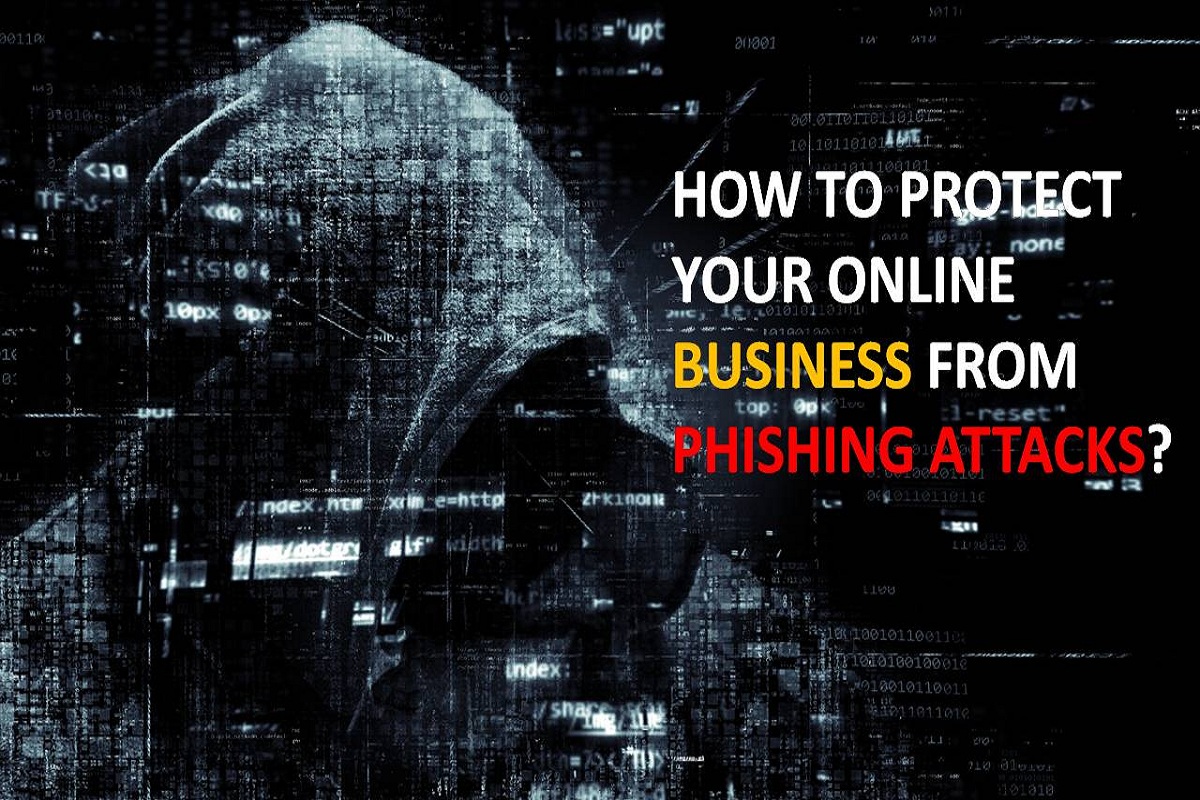Table of Contents
Protect Your Business from Phishing Attacks
Nowadays, phishing scams cannot be underestimated as they are increasing as well as evolving day by day. Almost 50% of emails are spam and most of the spam emails contain malicious attachments that cause severe damage to the company and customer’s private data. Beside online businesses, even individuals have become a victim of phishing attacks.
Phishing: Phishing is basically a hacker’s attempt to gain access to user’s private data like email id, network credentials, credit card information, account login information or bank detail. Cybercriminals may use any mode of communication like social media,email and phone calls for sensitive data stealing.
Every company or individual can save themselves from phishing attacks by following the below-mentioned ways:
-
Think Before You Click
As we already mentioned, suspicious emails and messages might be received at any time. Such type of messages may contain malicious attachments and links that can cause you the victim of phishing attacks. Most of the phishing emails ask users to fill out the private information like bank detail, login an account, enter a credit card number or many more. So, you should alert your employees as well as your customers about these scams and how to handle them.
-
Educate Your Employees
It is quite imperative to educate your faculty with regular training sessions and mock phishing scenarios. Employees have to work online to perform their daily company’s task and that’s why they are more vulnerable to phishing attacks. A training session should be conducted once every six months so that they can come to know about new ways of phishing and how to avoid them.
-
Use anSSL Certificate
Most e-commerce owners install SSL certificates on their websites to protect their and their consumer’s data from hackers. It is an encryption technology that protects data that is being transmitted between a web server and a web browser. Moreover, EV SSL Certificate has become the biggest hurdle for phishers as the websites have to pass through a strong validation process that powerfully discourages a phishing attack. Beside it, it boosts web conversion rate, build consumer trust and enhances business profits.
-
Deploy SpamFiltersand Web Filters
A number of inbound spam filters should be deployed to identify the suspicious emails and to avoid them to reach out in the inbox of the workforce. Furthermore, a few outbound web filters also must be used to block spiteful websites.
-
Set up Two-Factor Authentication
Two-Factor Authentication is used by organizations to add an extra layer of safety to protect users accounts from phishing attacks. When a user login into an account, an OTP(One Time Password) is sent to the user’s registered phone number to verify the login attempt. In this way, user’s accounts and their private information remain protected from hackers.
-
Secure Your Browsers
If the unsecured website would open without first checking the URL, it can pose to data breaching. Therefore, all company’s browsers can be prevented from phishing attacks by installing trusted extensions. These extensions verify the correct URL and do not let the user open unsecured websites.
-
Use Antivirus Software and Firewalls
Some companies do not use antivirus software as they consider it a waste of time. But, there are a number of reasons to use it. Special signatures feature that comes with some antivirus software protect from known technology workarounds and deceptions. In addition, make sure to use upgrade email firewalls and website firewalls to prevent your company from phishing attacks.
-
Use Strong Passwords
Usually, people use easy to remember, simple and same passwords for all accounts. In such cases, they become the victim of cybercrime because simple and easy passwords are cracked by hackers in just a few seconds. So, encourage your employees and customers to use a complex structure of password including special character, numeric and alphabets. For example, AMr45@.#. Moreover, you can use a special login tool that creates a master password for your all accounts and then creates randomized passwords for all your logins. It helpsto defend you against phishing attacks.
-
Use aSecurely Hosted Payment Page
If you want to give priority to your customer’s private data, you should use a securely hosted payment page on your website. There are a number of hosting providers available online, so make sure to choose the one that follows to up-to-date PCI DSS compliances, and useISO 27001 certifications from self-regulating auditors.
Conclusion
Around seventy percent of online business has become a victim of phishing attacks and the numbers are drastically growing day by day. Moreover, there is no single full-proof method to avoid these phishing scams, so your organization has to follow all the above-mentioned practices to diminish the threat. The more you keep up-to-date your systems and your employees the more you can secure your business and customer data from hackers.

